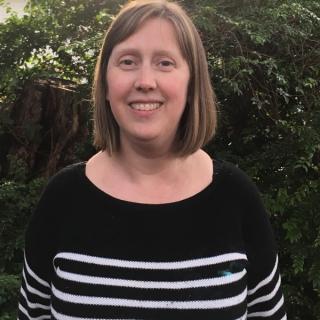
Photo:
Lilly DuPuis and Ellen Rikhof. Photo: Will Austin
What brought West Seattle High School students Lilly DuPuis and Ellen Rikhof together was a shared mission: to educate, advocate and create lasting change in the fight against sexual violence. DuPuis’ path began in seventh grade when she delivered a passionate speech to her language arts class about the pervasiveness of sexual violence. In eighth grade, she met Rikhof, a freshman, who was visiting DuPuis’ middle school in search of students willing to help tackle the problem of sexual violence.
As a freshman, Rikhof was adjusting to a new school when a friend confided in her about experiencing sexual violence. Answering the friend’s call to help, Rikhof and others created a school-wide presentation about consent. It quickly grew into a more organized initiative, founded by DuPuis and Rikhof: the Sexual Violence Resource Group (SVRG).
Both of the students cite the resistance to understanding and acknowledging the prevalence of sexual assault as a driving force in their work. “Over 11 percent of my classmates and peers have faced sexual assault during their time in high school,” says Rikhof. “Forty percent have been sexually harassed, and roughly 6 percent have experienced physical dating abuse,” explains DuPuis. Yet many still believe sexual violence is not a relevant issue. Rikhof, DuPuis and others involved in SVRG hope to fill these gaps in knowledge.
So far, their efforts are paying off. Since starting their work, DuPuis notes, “[Talking about] consent and unhealthy relationships has become less taboo, and there are more students — countywide — using our support service list.” Rikhof adds, “After devoting the four years of my high school career to the Sexual Violence Resource Group and broader prevention efforts, it is now impossible for me to walk through my school’s hallways without being directed to support services, seeing one of our informational posters, or encountering another mention of fostering healthy connections or asking for consent.”
The pair want people to understand that preventing sexual violence is not just their fight — it’s everyone’s. Rikhof explains how to join the cause: “To support our efforts, make a conscious effort to engage in conversations about boundaries, consent or healthy relationships. The foundation of sexual violence prevention is promoting a culture which prioritizes the respect and care for others and their wishes.” In particular, DuPuis reminds parents to “have conversations with your kids about autonomy and boundaries. Kids are never too young for healthy relationship education.” After all, with awareness, education and action, meaningful change is possible.
What book or podcast are you recommending right now?DuPuis: “How to Listen” by Thich Nhat Hanh and “The Beak of the Finch” by Jonathan Weiner. Rikhof: The podcast “Ologies” by Alie Ward. It gives listeners a small taste of a fascinating variety of fields of study, as well as an arsenal of fun facts. Who is your personal hero?DuPuis: It’s a tough choice between Laura Bates, an author and feminist from the U.K. who wrote one of my favorite books, “Men Who Hate Women,” and my CAD teacher, who’s been one of my biggest supporters since we met in my freshman year. Rikhof: Dr. Diva Amon, a deep sea biologist and conservationist. I’m incredibly inspired by the way that she combines her scientific career with her mission to preserve overlooked environments. What daily habit or small routine is most important to you?DuPuis: Journaling and doing my best to focus on what works for my mental health. Rikhof: My family’s gratitude practice. Each night my parents and I share the things that we are thankful for, and the wins we’ve had throughout the day. It’s rewarding and also makes me reflect intentionally about the moments I consider to be “gratitudes.” |











